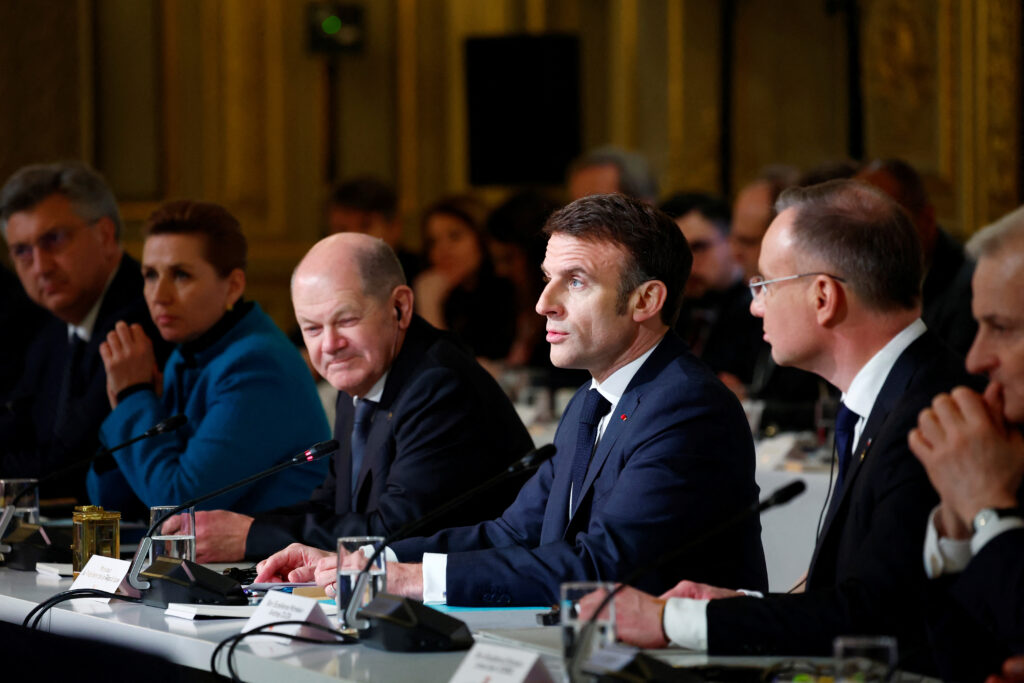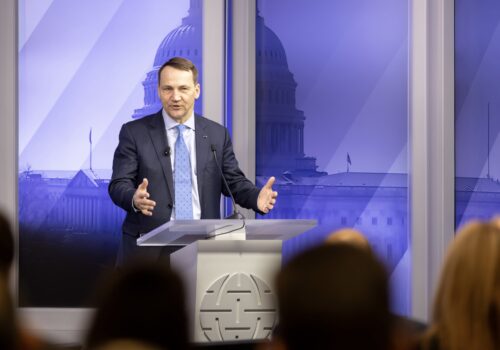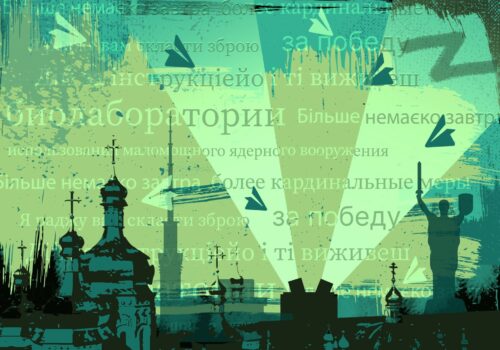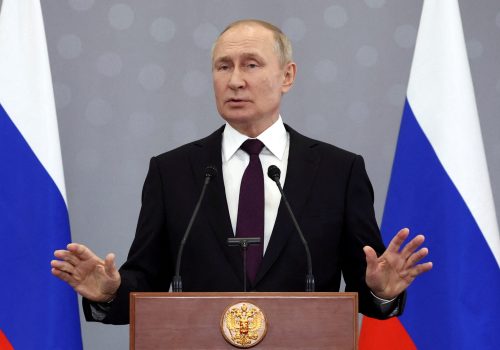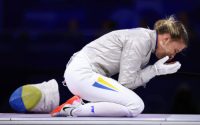Don’t let the ‘boots on the ground’ debate obscure the progress France is making on Ukraine
President Emmanuel Macron’s Ukraine conference in Paris on Monday could have stood out as galvanizing European leadership in support of Ukraine at a critical juncture in the country’s fight against Russia’s aggression. Behind Macron’s headline-making remarks that “nothing should be excluded” to support Ukraine was a genuine sense of urgency and determination, especially in light of the fact that additional US aid to Ukraine is currently stuck in Congress. However, that message was distorted. The spirit and achievements of the Paris conference, which included twenty-one heads of state and government, have been overshadowed by a Franco-German rift and media frenzy over Macron’s statement that sending boots on the ground “had been raised” as an option.
Focusing on the sensitive, divisive, and speculative issue of a potential Western military presence in Ukraine is a distraction from the concrete steps that European leaders made in Paris to support Kyiv.
To start with, a common European strategic culture toward Russia is taking shape. Even after the illegal annexation of Crimea by Russia in 2014, European leaders held stark divergences of opinion about Russian President Vladimir Putin’s regime and the revisionist character of its ambitions. Since Russia’s full-scale invasion in 2022, these divergences have been disappearing. The divergences that remain today, while real, are less the result of geopolitical divides among European leaders and more the outcome of populist movements in a given country’s foreign policy, the prime example being Hungary’s obstacles to EU aid to Ukraine.
Paris and Berlin . . . have come a long way in their support for Ukraine. Washington won the argument.
The Elysée in particular has shown that it has learned from past mistakes of prudence, and it has shifted from calls in 2022 “not to humiliate Russia” to, now, “taking all possible measures for Russia not to win the war.” The French government also recently affirmed the concern that Russia could attack a member of NATO within a few years if it is not defeated in Ukraine. The adoption by the United Kingdom, France and Germany of security agreements to Ukraine confirms Europe’s consistency regarding future commitments and assistance. It sends a signal that Europeans are determined to prevent Russia from achieving a victory against Ukraine through protracted warfare.
The lingering but still sharp Franco-German rift on display after the recent conference in Paris should be viewed in light of what Paris and Berlin have in common: both have come a long way in their support for Ukraine. Washington won the argument. Despite its humble beginnings in its support for Ukraine, Berlin can rightly now claim to be Europe’s largest arms and munition contributor to Kyiv. While Paris initially kept its aid to Kyiv close to the vest, it has recently ramped up its aid both in terms of quantity (from one and a half billion euros in 2022 to three billion promised this year) and quality, for example with the provision of long-range deep precision SCALP missiles. This qualitative increase is especially important to keep in mind. Focusing just on numbers and rankings for aid doesn’t tell the whole story. France and Germany have also made important efforts to reinforce NATO’s posture and air shielding missions in the eastern flank.
To get more into the details of the Paris conference, France made important progress on two important but divisive initiatives on Monday: the Czech Republic’s ongoing efforts to fill the current ammunition gap by procuring stocks through third countries that otherwise would not agree to directly send shells to Ukraine, and the Estonian proposal to use joint bonds for European defense. On these two issues, Paris dropped its past opposition in favor of buying only European ammunition and going through EU financing mechanisms, respectively. The Czech initiative, a creative effort that has been ongoing since the start of Russia’s full-scale war, could prove critical in bridging current ammo shortfalls if additional US support for Ukraine remains blocked in Congress.
Dwindling munitions are a major and immediate issue for Ukraine, and it is notable that leaders in Paris made commitments in mid-February to help co-produce munitions in Ukraine. At the same time, progress was also made in Paris on the need for Europe to act beyond the provision of arms and munitions to Ukraine. Additional help is needed, for example, to increase the Ukrainian military’s overall performance and its resilience. In Paris, leaders agreed to look at options for a more robust involvement in cyber defense and enhancement of Ukrainian military capabilities, including close to the Belarusian border with nonmilitary personnel.
In fact, the “boots on the ground” debate that spun out of Macron’s comments is somewhat flawed. Europeans have been discussing the idea of providing more direct support for Ukraine for a few months now. This does not equate to sending Western military brigades to Ukraine, which of course would raise Allied sensitivities due to the fear of a direct confrontation with Moscow. But there are many other ways by which Europe could provide support closer to the Ukrainians while remaining below the threshold of co-belligerence.
For example, personnel in supporting roles outside Ukraine, such as in logistics and maintenance, could move inside Ukraine without upsetting that balance. They could help increase Ukraine’s efficiency in identifying targets, maintenance, industrial output, and ensuring the resilience of cyber networks. This could send a strong message of solidarity with Ukraine, complicating Moscow’s calculus and reducing its confidence in its ultimate ability to prevail. Moreover, Western countries might benefit from learning more closely from Ukraine, gaining a better understanding of the terrain and intelligence.
Ukraine is linked to the future of Europe. Looking beyond the headlines to dig into what actually happened at the recent conference in Paris makes clear that Europe is moving forward on ensuring that future. That is a good thing, but it’s also just a start, and Washington should make sure that it participates in a conversation that is no longer just happening at NATO headquarters.
Léonie Allard is a visiting fellow at the Atlantic Council’s Europe Center. Before her current role, Allard worked at the Defense Strategy Directorate of the French Ministry of Armed Forces.
Further reading
Mon, Feb 26, 2024
Polish Foreign Minister Radosław Sikorski: ‘Helping Ukraine is not only a good deed. It’s also a good deal.’
New Atlanticist By Radosław Sikorski
The United States must continue to back Ukraine and deepen its alliances to stop Putin’s aggression and prevent a wider global conflict.
Thu, Feb 29, 2024
Undermining Ukraine: How Russia widened its global information war in 2023
Report By the Digital Forensic Research Lab
On the battlefield, Russia has made strategic gains. In the information sphere, it has the resources and will to outlast the West.
Tue, Oct 18, 2022
Bowing to Putin’s nuclear blackmail will make nuclear war more likely
UkraineAlert By Andriy Zagorodnyuk
Giving in to Putin’s nuclear blackmail would not end the war in Ukraine. What it would do is set a disastrous precedent that makes a future nuclear war far more likely while encouraging uncontrolled nuclear proliferation.
Image: French President Emmanuel Macron delivers a speech to open a conference in support of Ukraine with European leaders and government representatives at the Elysee Palace in Paris, France, February 26, 2024. REUTERS/Gonzalo Fuentes/Pool
